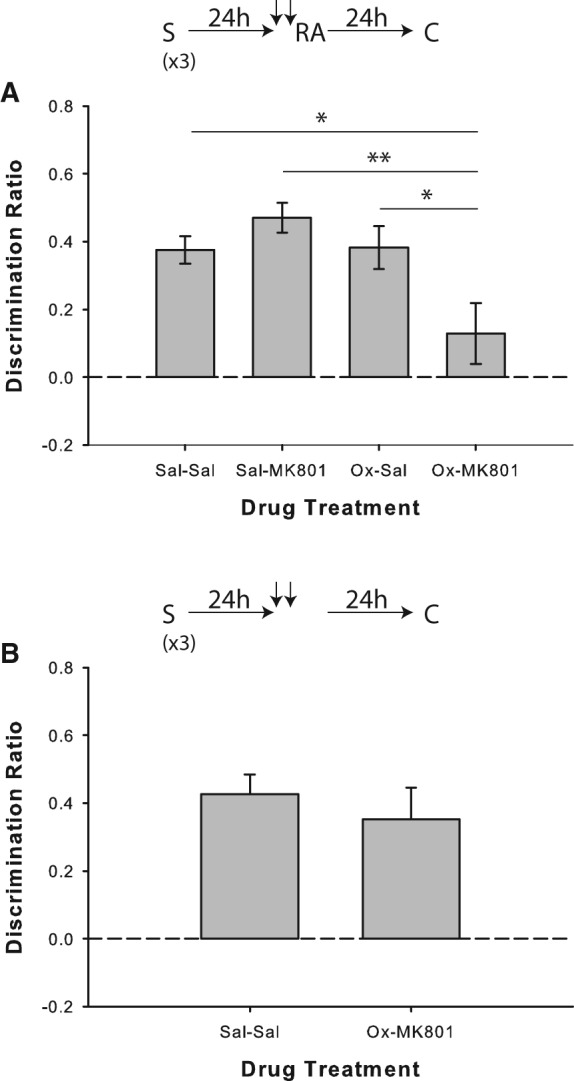Figure 5.

Muscarinic cholinergic receptor agonism with oxotremorine mimics novelty-induced destabilization of strongly encoded object memories. (A) Object recognition performance by rats in Experiment 4a (n = 20). Performance was not affected by the saline/MK-801 pairing when strongly encoded memories were reactivated in the absence of salient novelty; however, coadministration of oxotremorine (Ox) with MK-801 prior to reactivation produced a failure to discriminate between the novel and sample objects in the choice phase. Rats in all drug conditions except for Ox/MK-801 showed significant novel object preference, as indicated by separate one-sample t-tests versus chance (0). (B) Experiment 4b (n = 8), in which the reactivation phase was omitted, confirmed that the impairment seen in the Ox/MK-801 condition was reactivation-dependent. Rats treated with either a double injection of saline or oxotremorine plus MK-801 discriminated significantly above chance according to one-sample t-tests. Data are presented as average discrimination ratio ± SEM. (*) P < 0.05; (**) P < 0.01.
